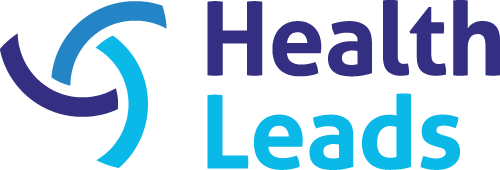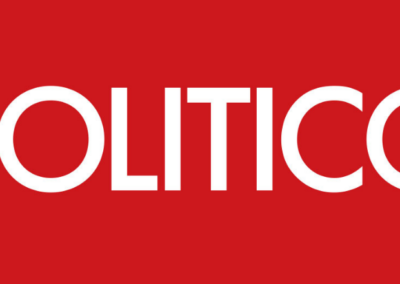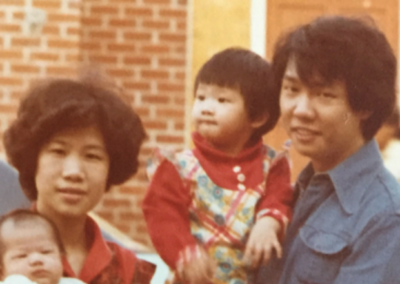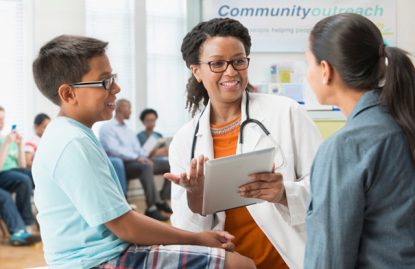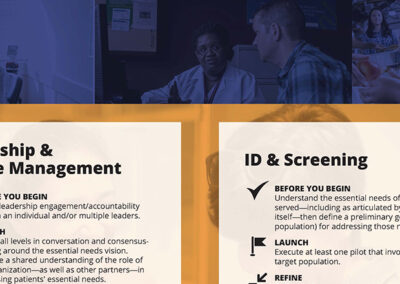Q&A with Dr. Janice Underwood, Virginia’s first cabinet-level Chief Diversity Officer
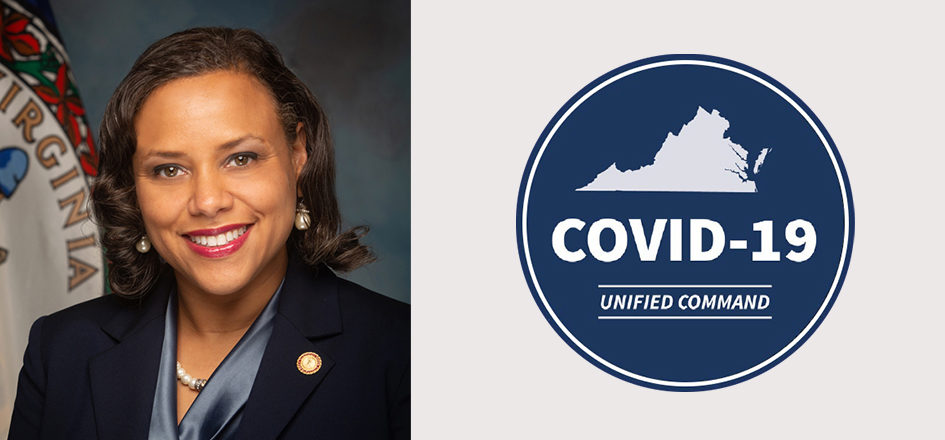
Since September 2019, Dr. Janice Underwood has served as Virginia’s first cabinet-level Chief Diversity Officer. This position is also the first of its kind in the nation and could serve as a model for other states. Dr. Underwood currently leads the Health Equity Task Force and has worked with legislators, community leaders, civil rights and faith leaders, and stakeholders at both the local and national level to ensure the administration implements policies with an equitable lens.
We sat down with Dr. Underwood to discuss the transformative work the Northam administration and her team specifically are doing to fight racial injustice, advance equity across many dimensions of diversity, and build equitable systems in response to racial injustice and the COVID-19 pandemic. Check out our conversation below.
What is the Commonwealth of Virginia and the Northam administration in particular doing to address racial inequities?
Because racism is institutionalized, we realize we must institutionalize mechanisms to confront it. We are confronting racist policies and culture with anti-racist mechanisms. For example, Governor Northam appointed me as the nation’s first cabinet-level chief diversity officer to address these issues in unprecedented ways. This position has been codified by our General Assembly, which means this position is now a permanent part of every future administration, which is important because we also know this work will require more than the 18 months we have left. We believe that individual acts of prejudice and bigotry are painful and unacceptable, but in addition to that, we are also really looking at ways to collaboratively confront these issues across systems and secretariats. So, the entire cabinet and the whole administration is collaborating to prioritize ways all of us can make these changes for the long-term.
I am leading the work to institutionalize the ONE Virginia Plan across more than 100 state agencies to increase workforce diversity and a sense of inclusive excellence. Our first cohort of six agencies will be those agencies that provide COVID-19 support to the public. I also lead the Equity Leadership Task Force, an innovative coalition of senior leaders that oversee the state’s COVID-19 Health Equity Working Group which ensures that the entire unified command structure includes a health equity lens. This kind of task force and working group, which uses a whole-of-government approach, is the first of its kind to exist in Virginia state history or nationally to be included during a state emergency declaration.
The administration has committed a significant amount of funding to eliminate maternal and neonatal mortality in Black and LatinX communities, created the Commission to Examine Racial Inequity in Virginia Law to remove racist language in our code, prioritized funding for Historical Black Colleges and Universities (HBCUs) in Virginia, and because of a unified House and Senate, we passed the most historic equity legislation in the history of the Commonwealth of Virginia. We’ve also created other educational equity initiatives, including the G3 program, a tuition-free community college program for low and middle-income students and the African American History Commission to change our statewide educational standards to be more historically accurate. We were also one of the first states to announce our commitment to take down racist monuments, formed a commission to study the impact of slavery, created an Office of New Americans, codified a state level environmental justice council, passed historic criminal justice reform, and was only second to Texas to recognize Juneteenth as a paid state holiday, in which nearly every local government soon followed. We’ve done so much, but there is so much more to do. We have a special session coming up on August 18 and the regular General Assembly session in January 2021 to keep up this momentum.
The Black Lives Matter (BLM) movement has become a prominent voice in America that is demanding social justice across the country. How has the VA administration addressed the BLM protestors and their calls for social justice and racial equity?
My entire family and I have participated in the BLM protests. But I also have engaged in numerous conversations with protestors and have talked about their experiences with law enforcement. During these conversations, they shared their grievances and at times solutions on how the state and local government can help minority communities moving forward.
With every suggestion, I always try to take it a step further. For example, someone mentioned banning chokeholds and requiring all disciplinary records to be public record. I responded with, “In addition to banning chokeholds, why don’t we create a registry or a database where no other law enforcement officer can get hired in the Commonwealth of Virginia, if they have been charged with using excessive force. We should also have review boards composed mainly of non-law enforcement related residents.”
I am determined to turn the Black Lives Matter movement into actionable items. This is a movement that goes beyond police brutality, and we must confront the broader endemic structural institutionalized racism that has allowed the unfair and brutal policing of Black, LatinX, and Virginia Indigenous communities, as well as all of the other manifestations we’ve seen over the last 400 years. Therefore, the Governor and I and other members of the administration are following up with the protestors, local current and past chiefs of police, the Virginia Association of Chiefs of Police, the Virginia State Police, and those who have been victims or survivors of racially motivated violence. We are also holding a virtual statewide community town hall on law enforcement and general societal reform at the end of the month, where any and everyone can hear directly from the Governor and share their suggestions.
When the protestors are marching on the streets outside, I am giving them a voice inside. I have access and a seat at the table. We are in the room where the real change is decided and happens. So, I’ve invited many from my protestor focus groups to that same table where they sit across from me and the Governor to share their personal experiences and suggestions, which is commensurate with the critical race theory framework, a framework that has long guided all of my research and current work.
So, in the same way the Governor created a historic 2020 equity agenda birthed from a series of community conversations in 2019, he also plans to turn these important Black Lives Matter conversations into actionable reforms in our special August and 2021 General Assembly sessions. Stay tuned.
What is the VA Equity Task Force doing to include the community in the legislation reform process?
In order to foster genuine community engagement, we (the government) have to include many voices and relinquish some of our power. At the state level we are making intentional efforts to include the community in the conversation and decision-making process, including reaching over 25,000 residents with virtual town halls and video conferences and by sharing many of our internal memos, communication campaigns, and strategic plans with our health equity working group members. This is all done in to get the community’s recommendation prior to sharing it with the COVID-19 Unified Command, which is an emergency management organizational structure that exists at the local, state, and federal levels to supervise the response and recovery during times of crisis or a disaster declaration.
I don’t do this work alone. Members of the Equity Leadership Task Force include: Alaysia Black Hackett (Governor’s Office), Director/State Coordinator Curtis Brown and Dr. Lauren Powell (Virginia Department of Emergency Management), and Sable K. Nelson Dyer (Virginia Department of Health). Members of the working group are composed of diverse employees at state agencies and those who volunteer on the Governor’s advisory boards, but it also includes community stakeholders that include private residents, historians, diverse faith leaders, members of the state and local chapters of the NAACP, the Virginia Coalition for Immigrants Rights, and several other nonprofit organizations that work in different sectors throughout the state, such as the Hampton Roads chapters of the Urban League and the United Way.
With that being said, we are not naïve and know that we can’t completely change systemic racism in the last 18 months of the administration, let alone in four years. But we are doing everything in our power to address racial inequality and hopefully the next administration will pick up the mantle and continue to fight this good fight.
How is the administration engaging minority communities as they attempt to heal from the current state of affairs in the U.S.?
The community is looking at leaders at all levels to help the state and the nation heal. So in addition to the upcoming virtual statewide town hall to reckon with ways racial violence have impacted our state and nation, we organized a state-wide interfaith prayer vigil. It included every belief system, such as Sikh, Jewish, Methodist, and Catholic priests, Baptist pastors, and Muslim Imams, to name a few. We featured an American Sign Language interpreter and those who spoke English, Spanish, Arabic, and Korean. The prayer vigil was a symbolic way to say while we exist as many different Virginians within one Commonwealth, we are one Virginia, and therefore have more that unites us than divides us – we are all in this together and we have each other’s back as we stand in solidarity against a public health and economic crisis as well against racial injustice.
What is the Health Equity Task Force doing to address the COVID-19 pandemic as it hits Black, LatinX, and Virginia Indian populations the hardest?
As a Black woman, I can relate with the Virginia community that is being impacted by the COVID cases, deaths, and are also fighting for racial equity and social justice. I am hyper-aware that people are hurting because their voices are often ignored, they feel marginalized, and are often disenfranchised.
At the onset of the COVID-19 outbreak in Virginia, we proactively created the Health Equity Leadership Task Force to provide leadership to the Health Equity Work Group. The taskforce develops strategies to help minority and vulnerable communities that are disproportionately impacted by the pandemic.
For example, we created a personal protective equipment (PPE) distribution pilot program, using census tract data and GIS maps, to help us pinpoint the neighborhoods that are being most impacted. In early March, we were able to assess that every single COVID-related death in the city of Richmond, Virginia was African American. So in the same way, Congressman Lewis would say “we must get in good trouble and do something when we see something not right or not just,” we started an initiative in collaboration with the City of Richmond to serve the city’s vulnerable residents.
We launched a local-state government equity pilot program in the city of Richmond and Harrisonburg as a starting point to reform their local unified command toward health equity, where we provided equity training to the local government, GIS support in creating plans to distribute masks, hand sanitizer, and culturally affirming information about COVID-19. The majority of the individuals who received the PPE were middle-low income, elderly, essential workers, or were unable to socially distance in their homes. In some cities, our equity pilots are literally the only mechanism that’s getting PPE to underserved communities. To date, the Task Force has partnered with 26 additional local governments with plans to add an additional 25 in the coming weeks. So far we’ve distributed 241,500 masks and 229,500 bottles of liquid sanitizer all across the Commonwealth of Virginia.
Since the Health Equity Leadership Task Force is a relatively small group, how is your team ensuring the PPE program is sustainable?
We have created a robust strategic plan, established state/local partnerships and trained local governments, emergency responders, fire and police departments, local city officials, and public health departments across the state. The three-part training includes an audit of their COVID-19 messaging, including making sure their materials are available in different languages and that their websites follow the Americans with Disabilities Act (ADA) standards so disabled individuals have access to the information.
We also provide support with printing and language translation support. We ask every city that is implementing the PPE distribution program what languages are spoken in the targeted neighborhoods. For example, one of our partners, Mayor Deanna Reed in the City of Harrisonburg told us that the top five most spoken languages for the neighborhoods that we were targeting were Spanish, English, Kurdish, Swahili, Vietnamese. So we translate materials according to the needs of the areas we serve, as opposed to using a one size fits all approach, which is what equity is all about.
Are partnerships imperative for the Health Equity Task Force programs to thrive?
Yes, partnerships are key! In addition to partnering with local governments, we also partner with local Virginia Departments of Health, local hospitals, and nonprofits to provide a comprehensive model to set-up testing events. For example, an integrated approach includes distributing masks and hand sanitizer with an option to walk up or drive through to get tested, getting access to fresh food and individual gardens, and providing residents assistance with signing up for health insurance, other social services, and free communication supports, like laptops and internet hot spots with local communication companies.
Since we have implemented these programs, localities have continued to implement health equity, social determinants of health ideas, and innovative ways to figure out what are the needs of the people in the neighborhoods that they serve.
What’s next for the Health Equity Working Group?
In addition to continuing to support 25 more local governments in the coming weeks with health equity training and PPE distribution, we are also advancing plans to create a ONE Virginia toolkit that outlines equity reform strategies that increase diversity and inclusive excellence across all of state government, which includes our state supported colleges, universities and museums. We are also examining innovative ways to create a comprehensive case management model for Virginia’s contact tracers, so that we can create generational resilience among those most impacted by COVID-19, as well as to help schools, places of worship, and businesses more safely reimagine reopening plans when we will all be forced to reckon with the coming nightmare of when the regular “cold and flu” season overlaps with coronavirus 2 and COVID-19.
Dr. Janice Underwood is the first cabinet-level Chief Diversity Officer for the Office of Virginia Governor Ralph Northam. She can be reached at DEIDirector@governor.virginia.gov.
